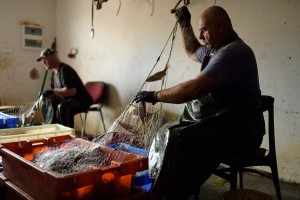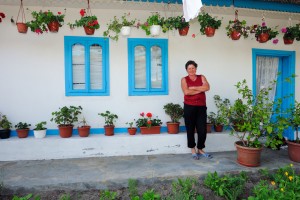In the early autumn of 2015, Rewilding Europe carried out a major attitude and knowledge assessment about rewilding, biodiversity and Natura 2000 network in eight rewilding areas. The assessment covered seven European countries: Portugal, Croatia, Italy, Romania, Poland, Germany and Bulgaria. The results are encouraging; people living in and around these eight rewilding areas understand and support the concept of rewilding, are aware about the problems of biodiversity loss and endorse the comeback of wildlife species.

The overall goal of the assessment was to get a better insight in the opinions and the level of awareness of the local people about rewilding, biodiversity and Natura 2000. Rewilding team members and volunteers in these areas interviewed more than 800 people throughout eight rewilding areas in just a few weeks time. These 800 people represent a wide array of local stakeholders: citizens of local villages and larger towns, local authorities, landowners, hunting associations, students, land managers and other citizen groups.
The detailed results will serve as a baseline to measure future trends in attitude and knowledge, but also to further enhance awareness raising and adapt our efforts to the local needs and opinions where possible.

More than 67% of the interviewed people consider rewilding and letting wild nature take more care of itself to be positive. In addition, the majority (75%) is aware that Europe is losing biodiversity and 36% consider the decline and possible extinction of animals, plants and their natural habitats in their home country to be a very important problem. Furthermore, 32% of the people agreed to allow native wildlife species that are today either missing entirely, or are in much lower numbers than natural, to come back into their region. More than 87% are endorsing the significant wildlife comeback that is taking place in large parts of the EU and 55% think that the wildlife comeback is connected with the Natura 2000.
When asked about the Natura 2000 network itself, 44% of the people in the rewilding areas heard about it but 78% are not familiar with any Natura 2000 site/s in their home country nor have they heard about the underlying legislation: the EU Habitat and Birds Directives (74%). Regarding the development of responsible tourism with a focus on nature, wildlife and local business, 87% of people are supportive to the idea.
Awareness about the economic potential provided by wild nature and wildlife is still relatively low. Only 26% of people strongly agreed with the statement that this could attract new investments, businesses, jobs and income to their region, while 21% did not have any opinion about it.

In 2013 the European Commission ordered a large-scale survey to assess the attitudes of European citizens towards biodiversity and Natura 2000 network, interviewing more than 25,500 people from 28 EU member states. The results indicated that there is a general lack of awareness of the European citizens about the problems of biodiversity loss in Europe. It also showed that the awareness of the Natura 2000 network is relatively low in Europe, and that 73% of Europeans have never heard of it. Furthermore, Europeans are also less likely to believe that nature protection plays an important role in stimulating eco-tourism.
Raising awareness about the economic potential arising from nature remains a challenge on both the European and local level. To tackle this Rewilding Europe will continue supporting new and existing businesses that foster nature-based economies through Rewilding Europe Capital and raising awareness by presenting successful business models and examples.
The outcome of the Rewilding Europe’s assessment, carried out in seven EU countries in and around the eight rewilding areas reveil a resembling but more positive situation. It provided a first good indication about the perception of local people towards rewilding activities in their countries and a useful baseline for future assessments of Rewilding Europe’s targeted efforts.
